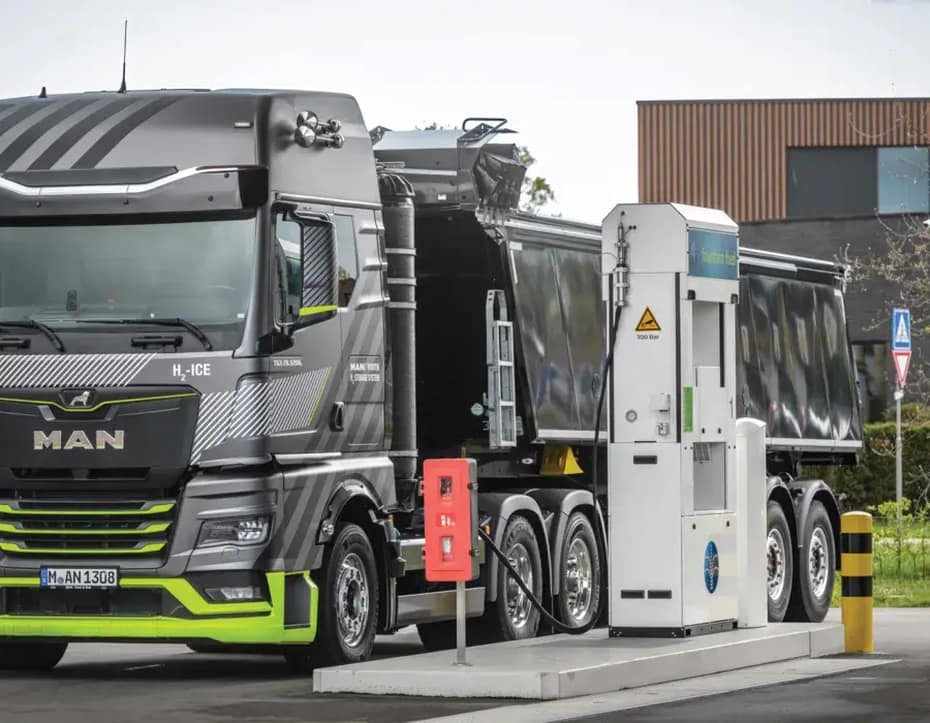Hydrogen or Double the Trucks
Hydrogen HGV decarbonisation UK – the logistics reality behind keeping freight moving without doubling the fleet.

Hydrogen HGV decarbonisation UK isn’t a slogan — it’s the fork in the road for British logistics. Either we embrace hydrogen for heavy fleets, or we double the number of trucks to haul the same freight. No manifesto required; just physics and business reality.
“If we don’t get weight allowances up for double-decks, we’ll need hydrogen — or we’ll double the number of trucks.” — Clifford Smith, Fleet Engineering Manager, Tesco (Motor Transport Decarbonisation Summit 2025)
Why battery trucks can’t carry the load
Battery-electric trucks are great for city drops and short-haul routes. But for 40-tonne HGVs pounding up and down the M62, batteries steal payload, time and cash. Bigger batteries mean smaller payloads; smaller payloads mean more trucks; more trucks mean congestion and chaos. That’s not decarbonisation — that’s a logistics migraine with better PR.
Hydrogen keeps the system moving
Hydrogen isn’t a fantasy tech; it’s the pragmatic middle ground. Fast refuelling, full payloads, real range — everything fleets already rely on diesel for. In Germany and the Netherlands, hydrogen HGV decarbonisation is already a functioning reality. The UK, as ever, is playing catch-up — but at least the map’s in hand.
Where hydrogen fits best
- Long-haul & high-utilisation routes where range matters.
- Double-deck and weight-limited ops where payload is everything.
- Multi-shift fleets where hours on chargers kill turnaround.
Policy and weight allowances
Hydrogen HGV decarbonisation UK won’t happen through subsidies alone. We need weight allowances that reflect real-world payloads, not political optics. If the rules don’t change, even perfect technology can’t save the economics. Get the policy right, and operators will do the rest.
Learn more about hydrogen deployment
For deeper reading, check out:
Hydrogen Internal Combustion – the pragmatic guide and
UK Hydrogen Policy 2025.
For broader context on the industry, see
Motor Transport, who’ve been tracking operator trials and infrastructure progress across Europe.
Bottom line
Hydrogen or double the trucks. One path cuts emissions and keeps freight moving. The other clogs Britain’s roads while pretending to save them.
As highlighted by Motor Transport,
hydrogen infrastructure and zero-emission logistics are no longer fringe experiments.
Tesco’s hydrogen trucks and UK fleet trials prove that hydrogen HGV decarbonisation UK efforts are
commercially viable when aligned with government-backed road freight programmes.
Decarbonising road freight isn’t optional — it’s operational survival.
Credit: Motor Transport, Decarbonisation Summit 2025.
#hydrogen #HGV #logistics #decarbonisation #infrastructure #congestion #MotorTransport #Tesco #netzero
FAQ
Is hydrogen always better than battery-electric for HGVs?
No. BEVs win for short-haul and back-to-base operations. Hydrogen takes the lead for heavy payloads, long distances, and quick turnaround — the backbone of hydrogen HGV decarbonisation UK.
Why is payload so critical?
If you lose payload to battery weight, you need more trucks for the same freight. More trucks equal more congestion. Hydrogen preserves payload and range simultaneously.
Where can I follow industry progress?
Visit Motor Transport for updates on fleet trials, infrastructure, and zero-emission HGV rollout.
